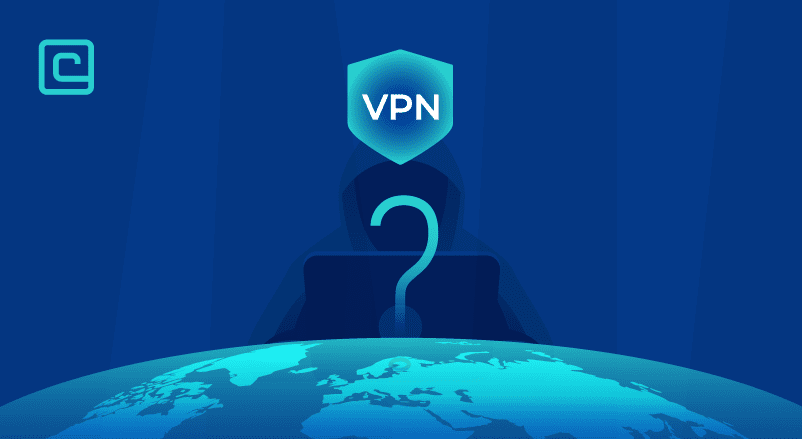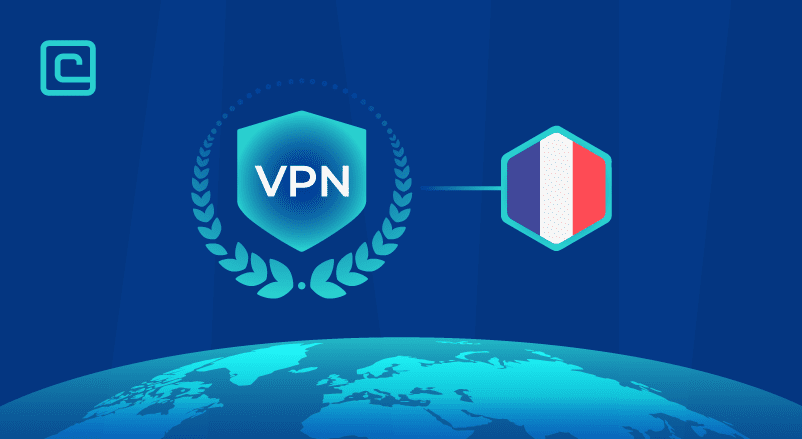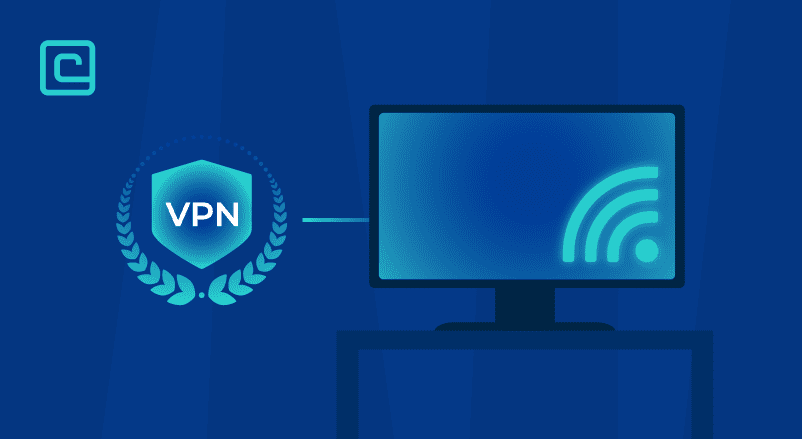Can You Be Tracked When You Use a VPN in 2024?

Are you wondering if you can be tracked with a VPN? The answer is not simple. Many think using a VPN makes them completely hidden. But, the reality is that VPNs offer some privacy, but they’re not perfect.
They can’t always keep you hidden. So, it’s important to know how to stay safe online.
In this article, we’ll dive into the issue of tracking with a VPN. We’ll also share tips on keeping your online activities private and secure.
Are you wondering if you can be tracked with a VPN? The answer is not simple. Many think using a VPN makes them completely hidden. But, the reality is that VPNs offer some privacy, but they’re not perfect.
They can’t always keep you hidden. So, it’s important to know how to stay safe online. We’ll look into this and give you tips to keep your privacy secure.
VPNs that Protect You from Being Tracked
- NordVPN – has anti-track protection with audited no-logs policy and RAM-only servers
- Surfshark – audited no-logs policy and respectable VPN service
- PrivateVPN – privately-owned secure servers with zero logging
Test Your VPN Knowledge – Take A Quiz!
Who Can Track You While Using a VPN?
Using a VPN can help keep your online activities private and secure. But, it doesn’t make you completely invisible. There are groups that can still track what you do online, even with a VPN. Here are some of them:
Internet Service Providers (ISPs)
Internet Service Providers (ISPs) can see what you do online, even with a VPN. They might not see the exact websites you visit. But, they can tell you’re using a VPN and might slow down your connection.
Government and Law Enforcement Agencies
Government and law enforcement can also track your online activities with a VPN. They have tools to detect and monitor VPN traffic. This could help them identify you and what you’re doing online.
Cybercriminals and Interested Parties
Cybercriminals and others looking to harm you might try to find you online, even with a VPN. They could try to steal your login details or put malware on your device.
Employers
Your employer might also watch what you do online, even with a VPN. They could check the websites you visit, apps you use, and files you download.
Big tech companies collect data on their users, and even with a VPN, they might still track you.
Big Tech Companies
Big Tech Companies can still track you online, even with a VPN. For example, Google might track your search queries and location, even if you’re using a VPN.
While a VPN can help protect your privacy and security, it’s not perfect. Knowing who can track you online helps you take steps to protect yourself better.
How Can You Be Tracked with a VPN?
A VPN can offer some privacy and security, but it’s not perfect. There are ways to track a VPN user, which can risk your online safety. We’ll look at some common methods used to track VPN users.
DNS Leaks
A DNS leak happens when your computer uses a DNS server outside the VPN. This lets your ISP or others see your browsing, even with a VPN. DNS leaks can occur due to wrong VPN settings, a bad VPN service, or software bugs.
WebRTC Leaks
WebRTC is a tech in web browsers for chats and file sharing. It can leak your real IP address to websites, even with a VPN. To avoid WebRTC leaks, disable it in your browser or use a blocking extension.
IP Leaks
An IP leak can happen if your VPN drops or doesn’t encrypt your traffic. This reveals your real IP and location to anyone watching. To stop IP leaks, use a VPN with a kill switch that cuts off your internet if the VPN drops.
Browser Fingerprinting
Browser fingerprinting identifies you based on your browser and device. It can reveal your identity, even with a VPN. To hide your browser fingerprint, use a privacy-focused browser or extensions that block tracking.
Malware
Malware can infect your device and bypass your VPN, risking your privacy and security. It can steal data, track your activity, and use your device for crime. Keep your antivirus software updated, avoid suspicious downloads, and use a VPN with malware protection.
Can Your VPN be Tracked?
Using a VPN might make you think you’re completely anonymous. But, it’s key to know that a VPN isn’t foolproof. Here are some things to consider about tracking your VPN.
Can VPN Usage Be Detected?
It’s important to know if your VPN can be detected by ISPs, governments, or network admins. There are ways to detect VPN usage, like checking IP addresses, port numbers, or using Deep Packet Inspection (DPI).
Checking IP Addresses
ISPs and websites can spot a VPN by its server’s IP address. They can check if the IP belongs to a VPN provider.
Checking Port Numbers
VPN protocols use specific port numbers, making it easy to detect VPN connections. For example, OpenVPN uses UDP port 1194, while IKEv2 uses port 4500.
Using Deep Packet Inspection
DPI is the most advanced way to detect VPN usage. It analyzes internet traffic to find patterns. China’s Great Firewall uses DPI to block VPN traffic.
Note: Obfuscation is a technique used by top VPN providers to counter DPI. It hides VPN traffic, making it look like normal internet traffic. So, to avoid VPN detection, look for a VPN that has implemented obfuscation.
Can VPNs be Tracked by ISPs?
Your Internet Service Provider (ISP) routes your internet traffic. They can monitor and track your online activities. But, if you use a VPN, your traffic is encrypted. Your ISP won’t see what you’re doing online.
Some ISPs use DPI to identify and block VPN traffic. Also, a low-quality VPN with weak encryption might let your ISP see your online activities.
Can You Be Tracked if You Use a Free VPN?
Free VPNs might seem like a money-saving option. But, they often track your online activities and sell that data to advertisers. In some cases, they might even be malware or phishing scams designed to steal your personal information. It’s best to choose a reputable paid service or, in extreme cases, pay anonymously.
Can You Be Tracked if You Use a VPN and it Disconnects?
If your VPN connection drops, your online activities may be exposed. This is why a reliable VPN provider with a kill switch feature is important. The kill switch will automatically disconnect your internet if your VPN connection drops.
Can the Government Track You if You’re Using a VPN?
A VPN can protect your online privacy from government surveillance, but it’s not foolproof. Government agencies might track you by monitoring your traffic before it reaches the VPN server or using advanced techniques like traffic analysis.
Some countries require VPN providers to keep logs of their users’ activities. This could be used to track your online movements. Choose a VPN provider that operates in a jurisdiction with strong privacy laws and a no-logs policy.
Can Google Track You if You Use a VPN?
Google can still track your online activities through cookies and other tracking technologies, even with a VPN. But, it won’t link your activities to your real IP address or location. It will only see the IP address of the VPN server you’re connected to.
To further enhance your privacy, use a privacy-focused search engine like DuckDuckGo. It doesn’t track your activities and offers anonymous searching.
Can an Employer Track You While You’re on a VPN?
If you’re using a VPN provided by your employer, they might track your online activities. They control the VPN server and can monitor the traffic. It’s important to read your employer’s VPN policy to understand what data they collect and how it’s used.
On the other hand, if you’re using a personal VPN to access work-related resources, your employer won’t be able to track your activities unless they have installed monitoring software on your device.
How Can You Tell if Someone is Using a VPN?
It’s hard to know if someone is using a VPN. Most VPNs encrypt your internet and hide your IP address. But, there are a few ways to figure it out:
- Check the IP address – if it doesn’t match the user’s location, they might be using a VPN.
- Look for inconsistencies – if the user’s IP address keeps changing, they could be using a VPN.
- Check for DNS leaks – some VPNs might leak DNS requests, showing the user’s real IP address.
How Can I Be Untraceable?
To stay untraceable, follow these steps:
- Choose a reliable VPN that keeps your IP and DNS safe.
- Use a privacy-focused browser that blocks tracking scripts and cookies.
- Opt for a search engine that doesn’t track your activities.
- Use encrypted messaging apps and email services.
- Install anti-malware software to protect your device from malware.
- Use a virtual machine or a dedicated device for sensitive activities.
Following these steps can boost your privacy and lower the risk of being tracked online. But, remember, no method is perfect. Determined people might still find ways to track you.
How to Avoid Being Tracked When Using a VPN
A VPN offers a lot of privacy and security. Yet, it’s not the only solution. There are ways to be tracked even with a VPN. But, you can take steps to enhance your privacy and security online.
Privacy-Oriented Browsers
Using a privacy-focused browser like Tor, Brave, or Firefox with privacy extensions can help. These browsers block ads, cookies, and trackers. This protects your online privacy.
Private Search Engines
Private search engines like DuckDuckGo or Startpage also protect your privacy. They don’t store your search history or share your data with advertisers. Learn more about their benefits.
Private and Secure Email
Choose a private email service like ProtonMail or Tutanota. They use end-to-end encryption. This means only you and the recipient can read emails. They don’t collect or share your data.
Private Messengers
For secure and private messaging, use apps like Signal and Telegram. They encrypt messages to keep them safe from snooping.
Reducing Your Online Footprint
Minimizing personal info online can also help. Be careful about what you share on social media. Use privacy settings to control who sees your posts.
Reputable Antivirus and Antimalware Software
Use trusted antivirus and antimalware software. Malware can harm your privacy and security. It can even get past your VPN.
Avoiding Free VPNs
Stay away from free VPNs. They might seem cheap, but they can be risky. They may sell your data, have weak encryption, or contain malware. Instead, choose a paid VPN service known for its privacy and security.
By following these tips, you can greatly improve your online privacy and security with a VPN. Remember, while a VPN adds security, it’s not foolproof.
FAQ
Can Websites Track You When Using a VPN?
Yes, websites can still track you with a VPN. They use cookies and browser fingerprinting. To reduce tracking, use anti-tracking tools and privacy browsers.
Can Your ISP Track You When Using a VPN?
Your ISP can’t see what you’re doing online with a VPN. But, they know you’re using one. Choose a no-logs VPN for privacy.
Can Your Government Track You When Using a VPN?
A VPN hides your online activities from your government. But, they might find ways to track you. Use a secure VPN and stay safe.
Can P2P Peers Track You When Using a VPN?
P2P peers can see your IP address with a VPN. But, they can’t find out who you are. Use a VPN with a kill switch and leak protection.
Can Your VPN Provider Track You When Using a VPN?
Your VPN provider might track you. So, pick a reputable one with a strict no-logs policy.
Can the Police Track You When Using a VPN?
A VPN makes it hard for the police to track you. But, they might use social engineering or malware. Stay safe by following best practices.
Can Your Employer Track You When Using a VPN?
Your employer can track you if they have access to your device or VPN. Use a personal device and a secure VPN to protect your privacy.
Can Google Track You When Using a VPN?
Google can track you with a VPN through cookies and browser fingerprinting. Use privacy browsers and anti-tracking tools to prevent this.
Can You Be Tracked When Using Public WiFi?
Yes, public WiFi is insecure and can track you. Always use a VPN and avoid sensitive data.
Can Someone Tell If You’re Using a VPN?
It’s hard to know if someone is using a VPN. But, some sites might block VPNs. Use a reputable VPN and follow best practices.
Can You Be Tracked If the VPN Disconnects?
Yes, you can be tracked if your VPN disconnects. Use a VPN with a kill switch and leak protection.
What Is the Best VPN to Prevent Tracking?
The best VPN for tracking prevention has a no-logs policy, strong encryption, and leak protection. Choose a reputable provider with a proven privacy record.
Conclusion
Using a VPN offers some privacy, but it’s not perfect. ISPs, governments, cybercriminals, employers, and VPN providers can still track you.
Choose a trustworthy VPN provider and avoid free VPNs. NordVPN is a good choice because it has a no-log policy and ad-tracking protection.

| 🌐 Website: | nordvpn.com |
| 🏢 Headquarters: | Panama |
| 📍Servers/Countries: | 5800+ servers in 60 countries |
| ₿ Accepts Cryptocurrency | Yes |
| 💸 Deals & Coupons | Get 68% off + 3 months extra |
VPN and Privacy Expert

